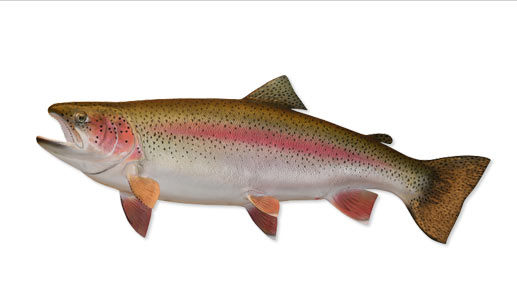
Rainbow trout, Onchorhynchus mykiss

Atlantic Salmon, Salmo salar
It has come to the attention of many salmon fish farmers that their stock has been dying from some sort of disease. The study performed by Anne Stene she has realized that this disease is Pancreas Disease, which is detrimental to Salmonids. What is really scary is that infected or dead fish can pass on this virus through the wind or the current of the ocean. What was also found was that the fat from the dead fish would float to the top of the water and if the fish were to come in contact with this fat they would also become infected. Like I have mentioned in previous posts there are millions of people who depend on the ocean for their lively hood, so with a disease that can be passed on so easily from one fish farm to the next this is a huge topic. Another factor that is critical is the virus's life period that the ocean allows it to possess, with the water being normal cold and quite clean it can survive for long periods of time. If those of you have read my recent posts about the ocean water temperature increasing, this is just another result of the water temperature rising. An interesting finding was that the salmon were not affected when they were in their smolt/fry stages of life.

Atlantic Salmon in smolt stage of life
In Lake Champlain the NYDEC has been stocking Atlantic Landlocked Salmon for years, trying to get them to reproduce in the wild to create a wild ALS population, but with water temperatures rising, competition with other species like bass, and the abundance of alewives can make the salmon infertile due to a thiamine deficiency from alewives. I would like to hopefully get a job one day in the NYDEC, and there is plenty of work to be done in this field of study. Now after reading the article that has been posted, it is important that as many of you read it that are fish farmers or care for salmon, because it is crucial that infection be stopped before the growth phase can be met with rising water temperatures. This is when the virus is at its most dangerous state, so with getting rid of infected or dead fish, and fat from those fish it is possible to counteract the damage that can be done.


